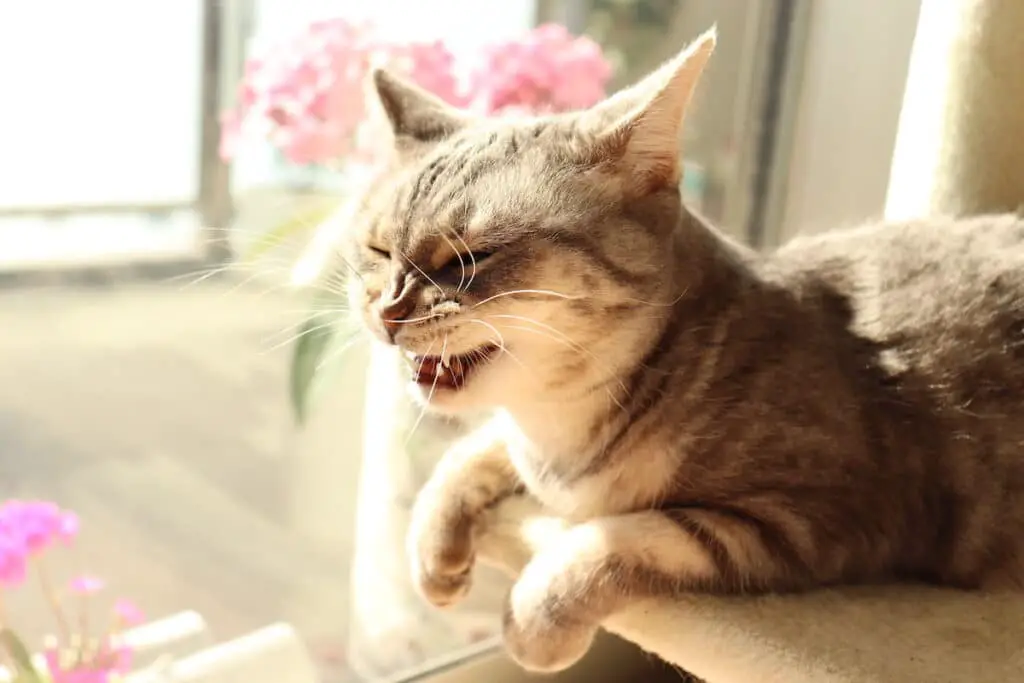Identifying the cause of your cat coughing and sneezing can help you to treat the problem. You may need to treat a hairball, or an infection. You may also need to make sure that your cat is drinking enough water.
Identifying the cause
Identifying the cause of coughing and sneezing in cats can help you determine the best treatment. The condition can be caused by a number of different factors, including allergies, worms, asthma, and chronic respiratory diseases. If you suspect your cat has a respiratory issue, schedule an appointment with your vet.
Coughing and sneezing in cats are common. This is because cats have sensitive airways and nasal passages, making them susceptible to respiratory diseases. During an asthmatic episode, your cat may experience difficulty breathing and may have trouble swallowing. Similarly, cats may also have difficulty swallowing if their airway is inflamed or if their trachea is infected.
Cats are also prone to infections, especially bacterial infections. These infections usually occur after a respiratory virus infects the nasal passage. If your cat is suffering from a respiratory virus, it is important to keep them away from cats with the same illness.
Several types of viral infections can cause coughing and sneezing in cats. The feline herpesvirus, for example, is one of the most common causes of upper respiratory infections in cats. This disease can be transmitted from cat to cat by direct contact or by breathing in sneeze droplets.
Another viral infection is the feline calicivirus, which causes over 80% of upper respiratory infections in cats. These infections require special care. Your vet may order blood tests, fecal samples, and other diagnostic tests to determine the cause of your cat’s coughing and sneezing.
Treating the infection
Taking care of the infection when your cat is coughing and sneezing is important to relieve the symptoms and slow the spread of the disease. If your cat is coughing and sneezing due to an infection, your veterinarian will prescribe the appropriate treatment.
An upper respiratory infection is a common ailment among cats. Some types of upper respiratory viruses can be prevented by vaccinating your cat before bringing him home. However, vaccinations are not always effective, and chronic infections may require prescription pet medications.
The most common types of upper respiratory infections in cats are viral and bacterial. Viral infections are not cured by antibiotics, and they may lead to secondary bacterial infections.
Bacterial infections can occur after the respiratory virus damages the nasal passage. A yellow discharge or sputum can be produced when your cat is coughing and sneezing.
If your cat is coughing and sneezing, your veterinarian may perform a chest X-ray or head X-ray to help determine the underlying cause of the disease. They may also run bloodwork and a physical exam. They may also order tests for suspected pneumonia or other complications.
When your cat is coughing and sneezing, your veterinarian may prescribe antibiotics. Antibiotics are used to reduce damage caused by the infection, and they may be given to reduce the likelihood of secondary infections.
Treating hairballs
Whether your cat is coughing and sneezing or not, hairballs can be a very unpleasant experience for both you and your cat. Fortunately, there are some things you can do to help prevent hairballs from happening.
A simple grooming routine is one way to reduce the amount of hair your cat ingests. Another good idea is to brush your cat using a deshedder cat brush. This helps to get the hair out of the cat’s mouth and into a more manageable size.
Another good idea is to feed smaller meals more frequently, which will help the cat to get rid of the food in its stomach. Taking your cat to the vet for a check-up is a good idea when you think your cat may be suffering from a cough and sneeze.
A vet can diagnose your cat’s cough and sneeze using a variety of methods. He or she may run tests to rule out other possible causes.
One of the most important things to know is that a cough and sneeze are not always a good indication of a problem. They can be caused by a variety of factors, such as fleas. Other causes include stress and illness.
Depending on the cause, your cat may require over-the-counter or prescription medication. These medications typically have a gel-like texture and are designed to help hairballs move through your cat’s digestive tract.














